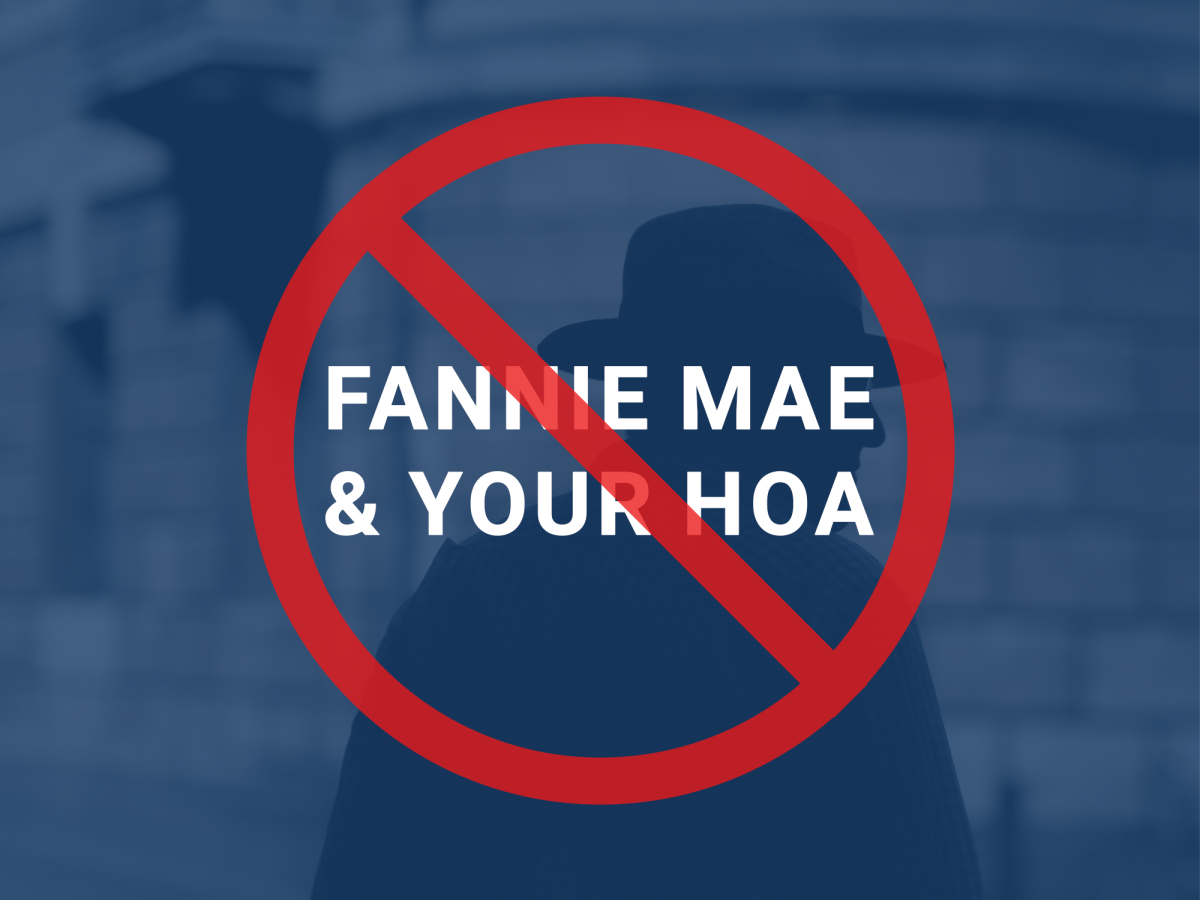
Fannie Mae Condo Blacklist to Be Made Available*
*But not until the bewildered herd is preoccupied with the 2024 Presidential Campaign
The Boston Globe on December 7, 2023: According to this report, Fannie Mae’s so-called Condo Black List will be made “public” sometime in Q3 2024.
More formally known as the “Condo Unavailable Projects and Phases Report,” the list consists of condominium projects in which mortgages secured by units within the development are ineligible for sale to the Federal National Mortgage Association (Fannie Mae).
Although specifics were not provided, the Globe article suggests the Federal Home Loan Mortgage Corporation (Freddie Mac) may well have a list of their own stating only that, “Freddie Mac announced something very similar on Wednesday.”
Inquiring minds can only assume that “something very similar” must be a list of blacklisted condominiums that are not eligible for purchase by Freddie Mac?
For those in the dark about “Fannie and Freddie” or how the residential mortgage market works in the U.S., it is estimated by the National Association of Realtors (NAR) that 70% of all mortgages are resold to investors, with Fannie and Freddie being by far the two most active purchasers of residential mortgages in this secondary mortgage market.
These two 800-lb gorillas are purported to be investor-owned corporations “sponsored” by the USGOV. However, as a result of the Housing and Economic Recovery Act of 2008 both Fannie and Freddie are now under the regulatory eye of the Federal Housing Finance Agency (FHFA) which is a federal agency of the U.S. Government. This translates directly into your hard-earned tax dollars being used to support the activities of Fannie and Freddie to one degree or another.
In our book, that makes Fannie and Freddie agents or subagents of the USGOV, and in turn, organizations that should be subject to the Freedom of Information Act (FOIA).
The fact that Fannie Mae has refused a request from CIDAnalytics to release the blacklist in a letter dated 12/6/2023 after CIDA filed a FOIA request on 11/11/2023, suggests that Fannie Mae is not acting in the best interest of the public; to say nothing of the hapless homeowners who find themselves owning a condominium in one the tainted developments.
Meanwhile, according to the law firm Allcock & Marcus (A&M), a FOIA request was sent to the FHFA and the Office of the Inspector General (OIG) has resulted in a denial from the FHFA and OIG claiming that they have “no record of the list,” suggesting (at the very least) that the oversight by the two mortgage giants FHFA / OIG may be lacking? To summarize:
- A list of tainted condominium developments that are NOT eligible for secondary mortgages (conventional financing) is maintained by Fannie Mae, and quite likely by Freddie Mac.
- The list has been kept secret from the public at large since it was created and has only been made available to a select group of law firms, government officials, and lenders.
- The owners of the condominiums in these developments may or may not have been informed of the fact that their HOA is blacklisted unless they have taken action by asking whether their HOA is on the list.
- Nor are the Boards that govern these organizations been advised about the situation, as a standard policy of Fannie or Freddie.
- No evidence suggests that Fannie or Freddie have offered any guidance to Boards impacted by the list regarding how to rectify the situation, and have their Association removed from the list.
- While the federal watchdogs drag their feet acknowledging that the timeline for releasing the list is in the midst of the 2024 presidential campaign (Q3 2024), the number of HOAs on the list continues to grow.
Consider these sobering facts from The Globe article:
- There were 1,770 developments on the blacklist when the existence of the same was confirmed in May of 2023.
- By August of 2023, the number had increased to 2,001 (13% increase).
- By October of this year, the number totaled 2,306, or an increase of 30% since May 2023.
- The Sunshine State has earned the dubious “honor” of being first on the list with 34.5% of the 2,306 developments on the list (796 HOAs in total) located in Florida.
- Tailing up the rear is CA with a distant 10.3% of the developments on the list.
- Interestingly enough, the sleepy lowland country of South Carolina has posted an embarrassing ranking of 4.6%.
To put the SC percentage in perspective, the state has 12% of the population of CA while the number of black-listed condominiums in the state is 44% of the number in the Golden State.
To put this story in a perspective that makes sense to the average workaday citizen:
- The fact that there is a blacklist of condominiums should not be a surprise to anyone close to the industry.
- This includes mortgage lenders such as Fannie and Freddie, RE professionals, the HOA management industry, or the various ancillary service providers that engage the 350K HOA in pursuit of business opportunities.
- The fact that an influential organization such as Fannie Mae has finally acknowledged the added risks associated with investing in a condominium in certain circumstances, should be viewed as a very positive development.
- The fact that the existing list has only been shared with a very small handful of industry insiders and well-connected individuals is a very bad thing!
- The fact that Fannie Mae and/or Freddie Mac is not being forced to disclose the list to anyone who requests a copy immediately, is an unconscionable breach of public duty which raises the issue of a lack of transparency at the highest levels of one of the most important institutions of the USGOV.
What can we learn from this saga?
Answer: Do not buy any condominium without undertaking a comprehensive due diligence inquiry into the operational history and financial condition of the organization.
Why? Because You’re Buying More Than a Home!
FOOTNOTE: If you want to confirm whether your HOA is on the Fannie Mae or Freddie Mac blacklist, please contact the HOA Detective™ at info@cidanalytics.com or using the Contact form on the HOA Detective™ website.







